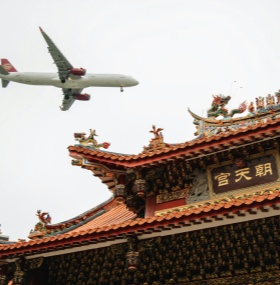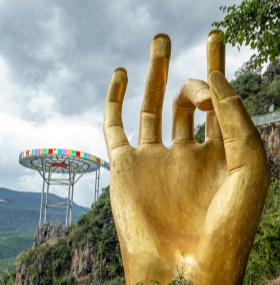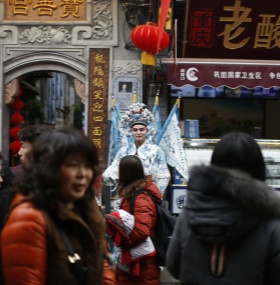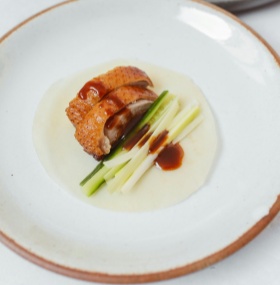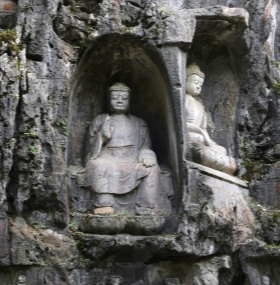Chengdu, often celebrated for its spicy cuisine and giant pandas, also boasts a rich tea culture that has been cherished for centuries. Tea drinking is not just a beverage in Chengdu—it's a way of life. From the bustling teahouses to serene tea ceremonies, Chengdu offers a variety of experiences for tea lovers and cultural enthusiasts. If you're looking to immerse yourself in the city's tea culture, here’s your guide to experiencing Chengdu's traditional tea practices like a local.
Related recommended itineraries:
2-Day Chengdu Sanxingdui Discover Tour
2-Day Chengdu Mount Qingcheng Tour
1. The Legacy of Tea in Chengdu
Tea has been a part of Chengdu's cultural fabric for over a thousand years. The region, with its fertile landscapes and ideal climate, is home to some of China’s best tea-growing areas, such as Mengding Mountain, a historical site known for producing high-quality green tea. In Chengdu, tea is a symbol of hospitality, a way to relax, and a means of socializing. For locals, drinking tea is a daily ritual, with gatherings often taking place in the city’s many teahouses, where people come to enjoy tea, chat, play games, or listen to traditional music.
2. Best Teahouses in Chengdu to Experience Traditional Tea Culture
To truly understand the essence of Chengdu’s tea culture, a visit to its historic and modern teahouses is essential. Below are some of the most iconic teahouses where you can savor traditional teas while experiencing the local customs.
Wenshu Monastery Tea House
Located within the tranquil grounds of Wenshu Monastery, one of the oldest Buddhist temples in Chengdu, this teahouse offers a peaceful atmosphere to enjoy tea. The serene environment, with its lush gardens and soft Buddhist chants, provides the perfect backdrop for savoring the finest Chinese teas. Whether you're in the mood for green tea, oolong, or a soothing herbal brew, Wenshu Monastery Tea House serves it all with a side of serenity.
Shu Feng Ya Yun Teahouse
For a cultural twist on tea drinking, visit Shu Feng Ya Yun Teahouse, located in the vibrant Jinli Ancient Street. This teahouse combines the art of tea with Sichuan opera performances. While sipping tea, you can enjoy a show featuring face-changing (Bian Lian) performances, an incredible traditional art where performers change their masks in a split second. This unique experience offers the perfect blend of tea culture and Sichuan’s theatrical heritage.
Lao She Teahouse
One of Chengdu’s most well-known teahouses, Lao She Teahouse, is a wonderful spot for both tea lovers and culture enthusiasts. Located in the heart of Chengdu, this teahouse offers traditional tea ceremonies alongside live performances of Sichuan opera, cross-talk, and other forms of Chinese entertainment. The combination of local tea and lively performances offers a fun and interactive way to experience Chengdu’s rich cultural traditions.
Kuanzhai Alley Teahouses
In the historical Kuanzhai Alley (Wide and Narrow Alleys), you'll find numerous traditional teahouses offering a range of teas and snacks in a charming, old-world setting. These teahouses are a great place to try Sichuan-style tea, accompanied by local delicacies such as crispy tofu and pickled vegetables. The relaxed pace and traditional décor will make you feel like you’ve stepped back in time.
3. Experiencing a Traditional Tea Ceremony in Chengdu
For those looking to take their tea experience to the next level, Chengdu offers an authentic tea ceremony experience that’s not to be missed. A traditional Chinese tea ceremony is a meditative and refined process that emphasizes the skill and care required to brew the perfect cup of tea.
What to Expect in a Chengdu Tea Ceremony
A traditional tea ceremony in Chengdu typically involves the following steps:
● Tea Selection: Guests are introduced to high-quality teas such as Mengding Ganlu (a green tea), Tie Guan Yin (an oolong tea), or Pu-erh (a fermented tea). The selection is based on personal preference and the time of day.
● Brewing Process: The tea is carefully brewed with precision—tea leaves are placed in a small teapot, and water is poured at the right temperature to extract the optimal flavors. The brewing process is slow, allowing the flavors to fully develop.
● Tasting and Etiquette: The tea is served in small cups, and guests are encouraged to observe the color, smell, and taste of the tea. This part of the ceremony emphasizes mindfulness and savoring each sip. The tea’s aroma and taste are deeply appreciated, as they reflect the skill of the tea master.
Many teahouses in Chengdu offer interactive tea ceremonies, where visitors can participate in the brewing process and learn the art of tea-making from skilled tea masters. You’ll also have the opportunity to learn about the history of tea in Chengdu and the cultural significance of each step in the ceremony.
Tea Picking and Tea Farm Tours
If you’re interested in going further into Chengdu’s tea culture, consider a trip to a local tea farm. One popular destination is Mengding Mountain, which is not only a beautiful hiking spot but also a place to learn about tea cultivation. Here, you can take part in a tea-picking experience, where you’ll pick fresh tea leaves and learn about the traditional methods of processing tea. The trip offers a hands-on way to understand where the tea comes from and how it’s crafted.
4. Why Tea is So Important in Chengdu
Tea drinking is woven into the fabric of Chengdu’s daily life. It’s common to see locals sipping tea in parks, teahouses, and even on street corners. In Chengdu, tea isn’t just about drinking—it’s about slowing down and enjoying the present moment. Tea serves as an invitation to relax, share stories, and bond with friends and family. For tourists, sipping tea in Chengdu can be a reflective and calming experience, providing insight into the city’s laid-back, hospitable lifestyle.
In addition to tea’s social aspect, Chengdu locals believe in the health benefits of drinking tea. Many of the teas served in Chengdu are renowned for their soothing and medicinal qualities, such as promoting digestion, reducing stress, and improving skin health. Contact us for more about Chinese teas.
Related Posts
Create Your Customized Trip
Take about 2 minutes to fill the form to tell us how you like to travel, and get a reply within 1 working day.


